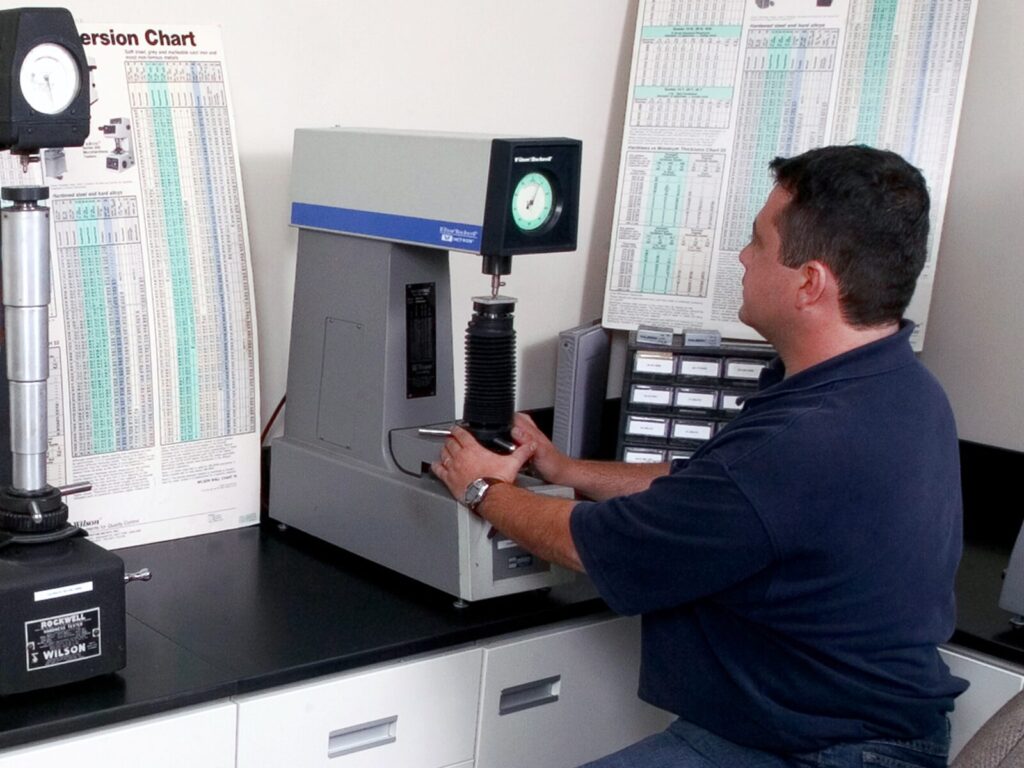Applied Technical services’ case depth hardness tests evaluate the mechanical properties of materials. Hardness tests can help predict a material’s performance in a specific environment or application, allowing manufacturers to make informed decisions regarding the intended purpose of a product or material.
Understanding Case Depth
Case depth refers to the thickness of a material’s hardened layer. Case depth is determined using mechanical, chemical, or visual methods. There are two types of case depth: effective and total case depth.
Effective Case Depth
Effective case depth refers to the distance between a part’s surface and a specific hardness.
Total Case Depth
Total case depth refers to the total distance nitrogen, carbon, or both are diffused into a material
Understanding Case Hardness
Case hardness is the outer surface of a material that is substantially harder than the material’s core. Case hardening is a that process hardens the surface of ferrous materials such as carbon steel, cast iron, and copper.
Common Case Hardening Methods
Induction Hardening
Induction hardening is a heat treatment used to enhance the material properties of materials.
Advantages include:
- Increased wear resistance
- Increased strength
- Increased fatigue life
- Minimal warpage
- Cost-efficient
Carburizing
Exposure to heat and carbon strengthens the material’s surface hardness. Advantages include:
- Increased wear resistance
- Increased strength
- Increased fatigue life
- Minimal warpage
- Cost-efficient
Gas Nitriding
Exposure to heat and atomic nitrogen increases the resistance and hardness of the material. Advantages include:
- Increased wear resistance
- Increased strength
- Allows post-application machining
- Cost-efficient
- Minimal warping
Applied Technical Services
Applied Technical Services provides professional consulting engineering, testing, and training services for domestic and international companies. Since 1967, we’ve earned a positive reputation amongst clients for our prompt and professional services. We’ve served clients in various industries, including:
- Ideal for brittle and sensitive materials
- Applicable to all materials; soft or hard
- Highly accurate
- Minimal damage done when testing
- Useful for irregular surfaces
Our metallurgy lab employs metallurgists, chemists, and engineers with have decades of combined experience in analysis and quality assurance testing services. Our lab technicians conduct tests using the latest accreditations and practices for companies working in industries such as:
- Aerospace
- Automotive
- Chemical
- Communications
- Commercial Properties
- Construction
- Consumer Products
- Defense
- Healthcare
- Insurance / Legal
- Manufacturing
- Nuclear
- Oil and Gas
- Power Generation
- Pulp and Paper
- Renewable Energy



